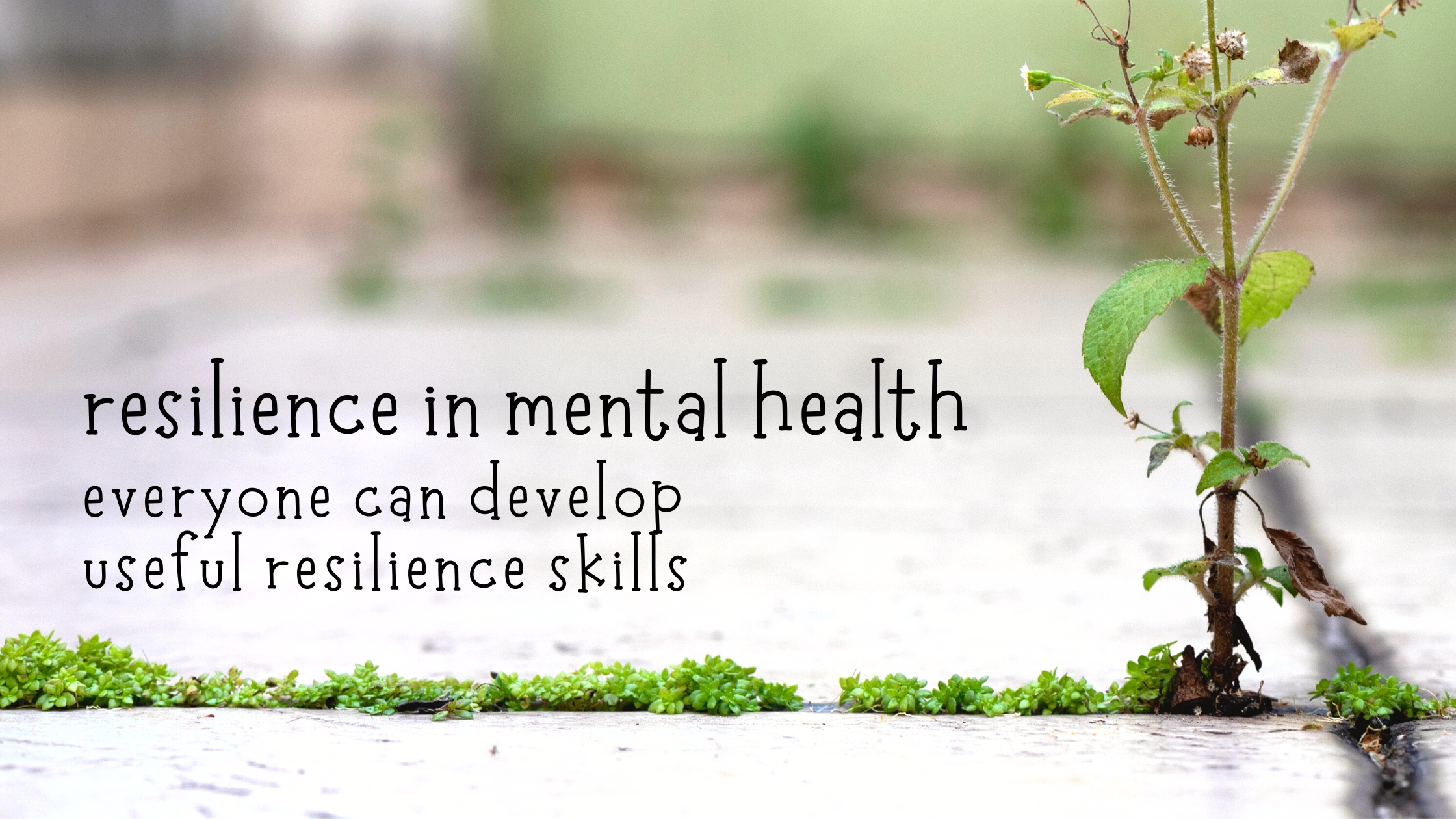Resilience & Mental Health: Building Strength, Not Bitterness

Table of Contents
Understanding Resilience and its Impact on Mental Health
Defining Resilience
Resilience is the ability to bounce back from adversity; it's about adapting to change and stress while maintaining a positive outlook despite challenges. It's not about avoiding hardship, but about navigating it effectively. Resilient individuals demonstrate a remarkable capacity to cope with and overcome difficult situations.
- Examples of resilient behaviors:
- Problem-solving effectively, breaking down large challenges into smaller, manageable steps.
- Seeking support from friends, family, or professionals when needed.
- Engaging in positive self-talk, challenging negative thoughts and replacing them with more constructive ones.
- Learning from setbacks and viewing them as opportunities for growth.
- Maintaining a sense of hope and optimism, even in the face of adversity.
These behaviors contribute to building resilience, fostering mental strength and emotional resilience, and promoting psychological resilience.
The Link Between Resilience and Mental Wellbeing
Strong resilience acts as a powerful protective factor against mental health issues like anxiety and depression. It equips individuals with effective coping mechanisms and enhances their ability to regulate emotions. Resilience doesn't eliminate stress, but it significantly mitigates its negative impact.
- How resilience improves mental health:
- Reduces the impact of stressful life events, minimizing their toll on mental wellbeing.
- Improves mental health outcomes, leading to greater overall well-being and life satisfaction.
- Promotes emotional regulation, helping individuals manage their feelings more effectively.
- Enhances self-esteem and confidence, empowering individuals to face future challenges with greater assurance.
- Fosters a sense of control and agency, reducing feelings of helplessness and hopelessness.
Practical Strategies for Building Resilience
Cultivating a Positive Mindset
A positive mindset is a cornerstone of resilience. It involves actively practicing positive thinking, reframing negative thoughts, and cultivating gratitude. This doesn't mean ignoring negative emotions, but rather learning to manage them constructively.
- Techniques for cultivating a positive mindset:
- Mindfulness meditation: Practicing mindfulness helps to focus on the present moment, reducing rumination on past events or anxieties about the future.
- Cognitive Behavioral Therapy (CBT): CBT techniques help identify and challenge negative thought patterns, replacing them with more realistic and balanced ones.
- Gratitude exercises: Regularly expressing appreciation for the good things in your life boosts positive emotions and fosters a sense of perspective. This can involve journaling, expressing thanks to others, or simply taking time to reflect on positive experiences.
Building Strong Social Connections
Strong social connections are essential for building resilience. Supportive relationships provide a buffer against stress and provide a sense of belonging and security. Don't hesitate to reach out for help when needed.
- The importance of social support:
- Provides emotional support during difficult times.
- Offers practical assistance, such as help with childcare or errands.
- Encourages positive self-perception and boosts self-esteem.
- Promotes a sense of belonging and connection.
If you’re struggling, consider seeking professional help from a therapist or counselor. Joining support groups for specific challenges can also provide a sense of community and shared understanding.
Developing Healthy Coping Mechanisms
Developing healthy coping mechanisms is crucial for managing stress and maintaining mental wellbeing. This involves identifying your stressors and learning techniques to manage them effectively. Prioritizing self-care is essential.
- Effective coping strategies:
- Stress reduction techniques: Regular exercise, yoga, deep breathing exercises, and spending time in nature can significantly reduce stress levels.
- Self-care activities: Engaging in hobbies, spending time with loved ones, or simply relaxing with a good book can help recharge and reduce stress.
- Healthy lifestyle habits: A balanced diet, sufficient sleep, and limiting substance use are all crucial for mental and physical health.
Overcoming Bitterness and Fostering Forgiveness
Recognizing and Addressing Bitterness
Bitterness, if left unaddressed, can severely impact mental health. It's essential to recognize its sources and understand its negative effects.
- Steps to address bitterness:
- Journaling: Write down your feelings, identify the source of your bitterness, and explore its impact on your life.
- Recognizing negative thinking patterns: Become aware of the negative thoughts and beliefs that fuel your bitterness.
- Seeking professional help: A therapist or counselor can provide guidance and support in processing trauma and overcoming bitterness. Trauma recovery is often a journey that requires professional support.
The Path to Forgiveness
Forgiveness, both of others and of oneself, is a powerful tool for healing and moving forward. It doesn't mean condoning hurtful actions, but rather releasing the resentment that keeps you bound to the past.
- Forgiveness techniques:
- Writing a letter: Express your feelings in a letter, even if you don't send it.
- Meditation and mindfulness: Practice forgiveness through mindfulness exercises that focus on letting go of negative emotions.
- Self-compassion: Practice self-forgiveness and recognize that everyone makes mistakes. Emotional healing is a process that involves self-compassion and acceptance.
Conclusion
Building resilience is crucial for protecting your mental health and navigating life's challenges. By cultivating a positive mindset, building strong social connections, developing healthy coping mechanisms, and fostering forgiveness, you can build strength instead of bitterness. Remember, resilience is a skill that can be learned and strengthened over time. Start building your resilience today and experience the transformative power of inner strength. Learn more about improving your mental wellbeing and fostering resilience through resources available online and in your community. Take the first step toward a more resilient and fulfilling life.

Featured Posts
-
 Michael Schumacher Devient Grand Pere
May 20, 2025
Michael Schumacher Devient Grand Pere
May 20, 2025 -
 Porsches Identity Crisis Caught Between Ferrari And Mercedes Amidst Trade Wars
May 20, 2025
Porsches Identity Crisis Caught Between Ferrari And Mercedes Amidst Trade Wars
May 20, 2025 -
 The Uncertain Future Of Clean Energy Navigating Resistance
May 20, 2025
The Uncertain Future Of Clean Energy Navigating Resistance
May 20, 2025 -
 Breite Efimereyonta Giatro Stin Patra 10 And 11 Maioy
May 20, 2025
Breite Efimereyonta Giatro Stin Patra 10 And 11 Maioy
May 20, 2025 -
 The 2025 D Wave Quantum Qbts Stock Market Performance A Comprehensive Review
May 20, 2025
The 2025 D Wave Quantum Qbts Stock Market Performance A Comprehensive Review
May 20, 2025
Latest Posts
-
 Ktore Pracovne Prostredie Je Efektivnejsie Home Office Alebo Kancelaria
May 20, 2025
Ktore Pracovne Prostredie Je Efektivnejsie Home Office Alebo Kancelaria
May 20, 2025 -
 Ekdilosi Gia Ti Megali Tessarakosti Stin Patriarxiki Akadimia Kritis
May 20, 2025
Ekdilosi Gia Ti Megali Tessarakosti Stin Patriarxiki Akadimia Kritis
May 20, 2025 -
 Nvidia Ai
May 20, 2025
Nvidia Ai
May 20, 2025 -
 Buducnost Prace Home Office Kancelaria Alebo Hybridny Model
May 20, 2025
Buducnost Prace Home Office Kancelaria Alebo Hybridny Model
May 20, 2025 -
 I Megali Tessarakosti Esperida Stin Patriarxiki Ekklisiastiki Akadimia Kritis
May 20, 2025
I Megali Tessarakosti Esperida Stin Patriarxiki Ekklisiastiki Akadimia Kritis
May 20, 2025
